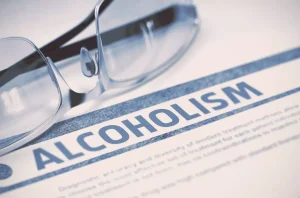
This process appears to depend on the involvement of genes such as Per2, which typically is involved in maintaining the normal daily rhythm (i.e., the circadian clock) of an organism (Spanagel et al. 2005). Acamprosate’s ability to suppress alcohol drinking has been observed across species, and the drug has been approved for the treatment of alcoholism in humans, primarily for its perceived ability to reduce alcohol craving and negative affect in abstinent alcoholics (Littleton 2007). Glutamate is the major excitatory neurotransmitter in the brain; it exerts its effects via several receptor subtypes, including one called the N-methyl-d-aspartate (NMDA) receptor. Glutamate systems have long been implicated in the acute reinforcing actions of alcohol, and alcohol effects perceived by an organism can be mimicked with NMDA receptor antagonists (Colombo and Grant 1992).
Short-Term Effects of Alcohol on the Brain
This protracted phase can include a variety of physical symptoms that vary based on individual circumstances, including the duration and frequency of use, and the individual’s overall health. Professional support, including evidence-based interventions and aftercare services, is essential for navigating PAWS effectively. This support helps manage prolonged withdrawal symptoms and reduces the risk of relapse. Alcohol consumption, particularly when excessive, can weaken the immune system, making it more difficult for the body to fight off infections. Regular heavy drinking can reduce the body’s ability to produce white blood cells and affect other components of the immune system. This susceptibility to illnesses can complicate existing health issues or create new ones, underscoring the importance of managing alcohol intake for maintaining overall health.
Health Problems Caused By Alcohol Dependence

Working with a health care professional will allow you to explore the options to treat your addiction. For example, if you take a sedative to sleep, it may work very well at the first dose. When you first start drinking alcohol, it may have taken only a few drinks for you to feel drunk. Addictions are more likely to result in serious harm, including suicide, unlike tolerance and physical dependence.

Impact on your health
- Statistics show that liver cirrhosis is one of the top 10 causes of death worldwide and this in itself indicates the severity of the same [16].
- This article delves into the multifaceted impacts of alcohol on the human body and mind, shedding light on the necessity of addressing these issues through informed choices and available treatment options.
- Alcohol dependence is differentiated from alcohol abuse by the presence of symptoms such as tolerance and withdrawal.
ACTH is carried via the blood stream to the adrenal glands (which are located atop the kidneys), where it induces the release of stress hormones (i.e., glucocorticoids) that then act on target cells and tissues throughout the body (including the brain). The main glucocorticoid in humans and other primates is cortisol; the main glucocorticoid in rodents is corticosterone. Amidst the worsening polysubstance overdose crisis driven by illicitly-manufactured fentanyl, accurately identifying opioid use disorder is crucial to target effective treatment and harm reduction efforts. Frequently, payers, health care providers, and even epidemiologists utilize claims data based on diagnosis code data to guide policy and treatment.
More on Substance Abuse and Addiction
Another method for assessing the reinforcing properties of alcohol is intracranial self-stimulation (ICSS). In this procedure, rats are implanted with electrodes in discrete brain regions and then are allowed to self-administer mild electrical shocks to those regions via standard physiological dependence on alcohol operant procedures. Rats readily self-administer shocks to brain regions that are important in mediating the rewarding properties of alcohol. The strength of the electrical stimulation needed for the animal to maintain responding reflects the reward value of the ICSS.
Alcohol dependence
This has been demonstrated by changes in the subunit composition of the receptor in those regions, the most consistent of which are decreases in α1-and increases in α4-subunits (for a summary, see Biggio et al. 2007). It might be surprising to hear that you don’t always have to be drinking to extreme levels to become dependent on alcohol. Being dependent on alcohol has a range of harmful physical and psychological effects.
- Many drugs cause dependence but not addiction, for example, paroxetine [10] and clonidine [11].
- It’s important for individuals in recovery to practice open communication and seek help when needed.
- Being dependent on alcohol has a range of harmful physical and psychological effects.
At the heart of addiction lies the brain’s reward system, a delicate balance of neurotransmitters that evolved to reinforce behaviors crucial for survival. When we engage in activities that promote our well-being, like eating or socializing, our brain releases dopamine, creating feelings of pleasure and satisfaction. While it motivates us to repeat beneficial behaviors, it can also be hijacked by addictive substances.
If you are someone who drinks a lot, you may be concerned about developing alcohol dependence. Many people don’t realize their bodies are reliant on alcohol until it is too late. https://ecosoberhouse.com/ So, how do you know whether or not you are developing a physical dependency on alcohol? Consuming alcohol, even in small amounts, starts affecting the body almost immediately.
- Stress can exacerbate these symptoms, leading to cravings and an increased risk of relapse if not properly managed.
- The National Center for Drug Abuse Statistics says more than 20 million people over the age of 12 in the United States have substance use disorder.
- For those seeking help, centres like Madison Recovery Center offer comprehensive treatment programmes that address both the physical and psychological facets of alcohol dependence.
- For example, the agent acamprosate modulates glutamate transmission by acting on NMDA and/or metabotropic glutamate receptors (for a review, see Littleton 2007).
For example, animal studies have indicated that elevation of corticosteroid hormone levels may enhance the propensity to drink through an interaction with the brain’s main reward circuitry (i.e., mesocorticolimbic dopamine system) (Fahlke et al. 1996; Piazza and Le Moal 1997). Similarly, systemic administration of antagonists that selectively act at the CRF1 receptor also reduced upregulated drinking in dependent mice (Chu et al. 2007) and rats (Funk et al. 2007; Gehlert et al. 2007). Abstinent human alcoholics typically relapse to alcohol drinking after acute withdrawal symptoms have subsided. Unfortunately, such longitudinal studies are not practical for high-throughput research. Accordingly, researchers more recently have started to condense the time scale required for such analysis by using specific procedures to induce dependence more rapidly (e.g., by exposing the animals to alcohol vapor).

Anyone with an addiction can get help at any point if they feel it’s the right time. Speak with your doctor if you have become physically dependent on a medication or other substance. The National Center for Drug Abuse Statistics says more than 20 million people over the age of 12 in the United States have substance use disorder. Most commonly, the cases are related to marijuana and prescription pain relievers.